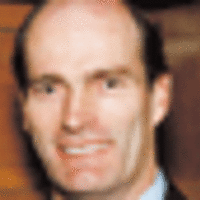On the prowl for insight into economists
Loading...
Yes, dear reader, we are working on a new book. And to save time and effort, we’re working on it right here in the pages of the Daily Reckoning.
What’s it about? Well, you might think that a writer has an idea… You might think he knows where he is going. Then, he sits down to write it. And that is certainly part of the story. But often the idea is more of an intuition…a vague feeling…a hint that there is some place where it is worth going, in hope of finding treasure. Where? What treasure, exactly? Often, the author doesn’t know.
The treasure we’re looking for is insight. We’re trying to understand why it is that the smartest economists in the world are so stupid. Â Incidentally, we hope to understand why GDP is a fraudulent measure of prosperity…and why central banking is a failure…and why the governments of the developed countries are doomed.
There is one simple idea that explains all of this…an idea that is both intuitively self-evident…and demonstrably unrelenting. But we’ll come to it in good time…let’s get back to economists:
Does Ben Bernanke really think he, personally, can improve the wealth and well-being of the world’s people by tinkering with his interest rates and bank policies? Apparently so…
Do Stiglitz, Krugman et al really think they can help the debt-soaked economy to grow by giving it more debt at a cheaper rate? Yes…that’s what they say…
Does Jeffrey Sachs actually believe that he and other smart economists can develop a strategy for the entire world economy? That’s the way it looks…
Yesterday, we took up the role of numbers. The greater the precision, we asserted, the greater the lie. Why? Because these economists really don’t know anything for certain. The best they can do is observe…guess…and hedge their bets with a ‘maybe’ or a ‘possibly.’ The more precisely they claim to know something for sure…the greater the distance between what they can actually know and what they claim.
But numbers are to an economist what make-up is to an aging starlet…put on enough of it and maybe the folks won’t see the truth.
Behind every number is a wrinkle… Small numbers hide small ones. Big numbers hide bigger ones. A big number, such as the unemployment rate, has a whole army of other numbers behind it. There are the statistical adjustments…seasonal adjustments…and enough arbitrary definitions to make a corpse look good.
The Bureau of Labor Statistics says that 8.2% of the workforce is unemployed. Simple enough. But what does it mean? What’s the ‘workforce?’ And what does it mean to be €˜unemployed?’ Think of all those people who work for cash…like the Latinos you pick up at gas stations for day work. Are they unemployed? How about the guy who couldn’t find a job, so he went back to school? Is he unemployed? What about the housewife who would like to find a job…sort of…but isn’t actively looking for one? Are these people part of the workforce?
It’s obvious that you can change the assumptions a bit and change the reported unemployment rate a lot. When statistician John Williams looks at the data, for example, he comes up with a real unemployment rate of 23% — almost as high as the jobless rate in Spain.
And yet, the BLS tells us that US unemployment is 8.2%. Not €˜around 8%.’ Not ‘less than one in ten.’ But 8.2%…exactly. And yet, there are so many slippery assumptions lurking in the shadows of this number that it is completely unreliable and practically meaningless. Or worse. It pretends to tell you something…but once you have taken it in you know less than you did before, because what you think you know is largely a fraud.
You could take almost any number used by economists and do the same analysis. Each digit masks a wart…a crease…a frown.
Probably no numerical grease is thicker and less transparent than the GDP. There, the numbers dissemble and mislead, just like economists’ other numbers. But it’s worse than that. The GDP concept itself is a deceit; not just vanity…it is fraud.
Here’s a story from the New York Post:
They take a limousine to McDonald’s, own his-and-her Segway scooters and have designed their new house with 23 bathrooms, each equipped with Jacuzzi tubs.
Time-share magnate David, 77, and his beauty-queen trophy wife, Jackie, 46, were already Orlando’s gaudiest couple when they decided to open their doors to filmmaker Lauren Greenfield as they broke ground on a 90,000-square-foot monster home with a 120-foot Grand Hall modeled after France’s Palace of Versailles.
It’s bigger than a 747-jet hanger. Designs include three swimming pools, 10 kitchens, a bowling alley, a skating rink and a garage that fits 20 cars. The home’s mahogany doors and windows alone cost $4 million.
“We never sought to build the biggest house in America,” Jackie says in the film, titled “The Queen of Versailles.” “It just happens.”
It has been described as tacky, trashy and tasteless, with the top three floors inspired by Las Vegas’ Paris Hotel.
Trashy? Tasteless? Hey, it added to the GDP!
About the New Book originally appeared in the Daily Reckoning. The Daily Reckoning, published by Agora Financial provides over 400,000 global readers economic news, market analysis, and contrarian investment ideas. Recently Agora Financial released a video titled "What Causes Gas Price to Increase?".








